this positivity cult is too crazy now
What Toxic Positivity Is, and Why We Get So Annoyed by the Phrase, “Everything’s Going to Be All Right”
Each of us has likely heard encouraging pieces of advice that actually made us feel worse. “Don’t overthink it, everything is going to be fine,” or “Don’t be sad, other people have it even worse!” Such phrases aren’t really helpful, but instead, they encourage us to avoid our problems and suppress true feelings.
We at Bright Side decided to figure out what dangers an exaggerated optimistic attitude toward life can hide and why it’s so important to let yourself feel positive emotions exclusively.
What toxic positivity is all about
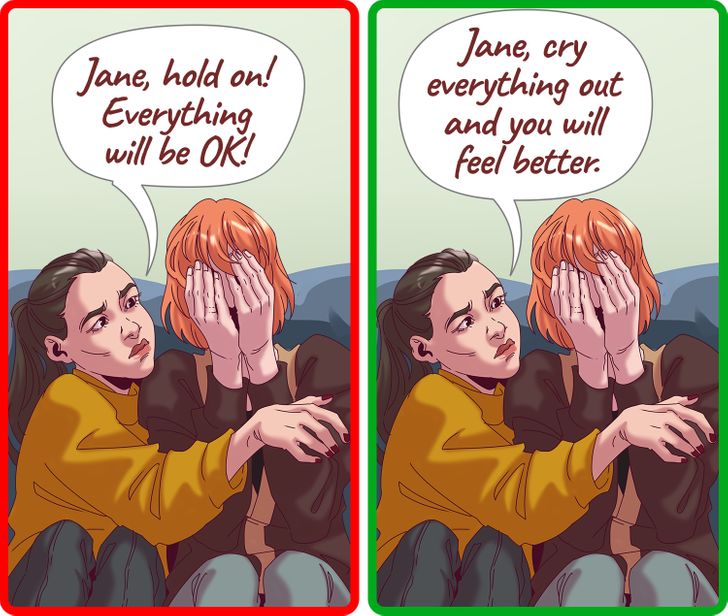
When speaking about toxic positivity, psychologists are referring to a life approach according to which a person has to always maintain a positive attitude and avoid any negative emotions. People who stick to this type of thinking oftentimes go to extremes. While trying to find the light side of everything, they repress negative feelings instead of living through them, which eventually worsens their condition even more.
When trying to support others, such people often behave in a toxic way. They sincerely don’t understand why their advice to not feel sad and keep it up is so annoying to others. They don’t suspect that letting a person speak their true feelings would be a much better way to deal with the situation.
Avoiding problems
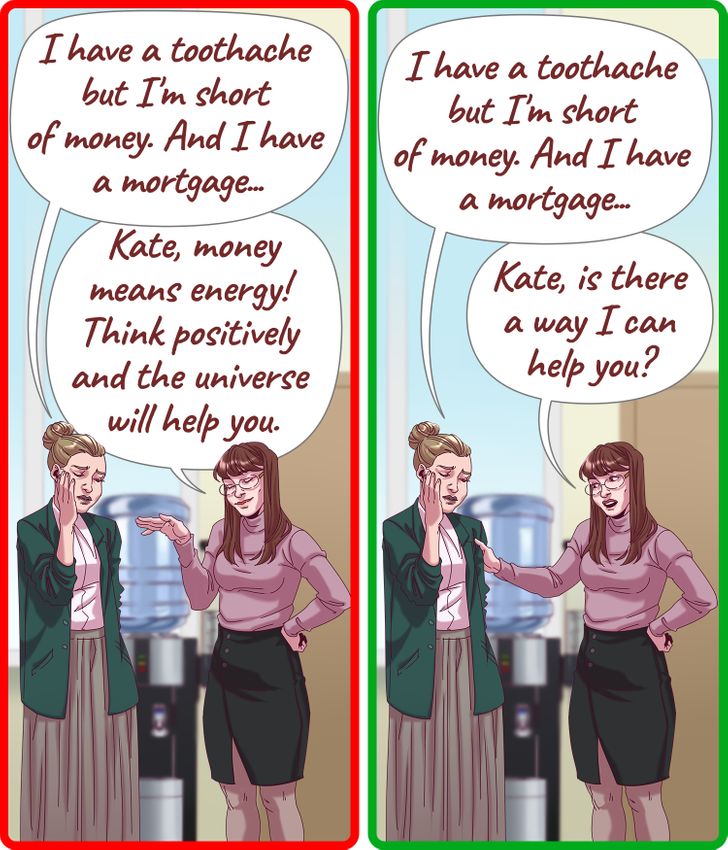
A situation where a person not only hides their true feelings behind standard phrases, like “Everything happens for the better,” “Happiness is a matter of personal choice,” or “Smile and the world will smile back to you,” but also shames others for relating to life not optimistically enough can also be an example of toxic positivity. “You got fired? That’s not a big deal! After all, you’re safe and sound,” “What’s so scary about getting a divorce? One wife today, another one tomorrow.”
Instead of looking for a way out of a difficult situation, such people cheat themselves. They behave like small kids who believe they’re not seen by others if they bury their face in their hands — “If I don’t pay attention to a problem, it means the problem doesn’t exist at all.”
A ban on negative emotions within themselves and from others
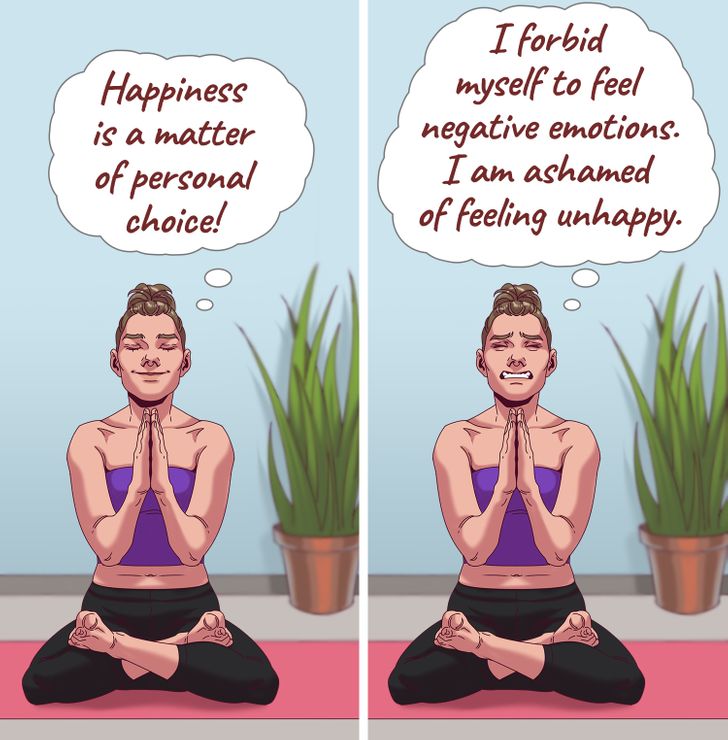
When neglecting and muffling negative emotions, a person only increases them. It might seem that the ability to fight “bad” feelings in oneself, such as fury, sadness, or gloom, are features of a strong personality. However, constant lying to oneself that everything is good when, in fact, it’s vice versa, eventually affects our psychological health.
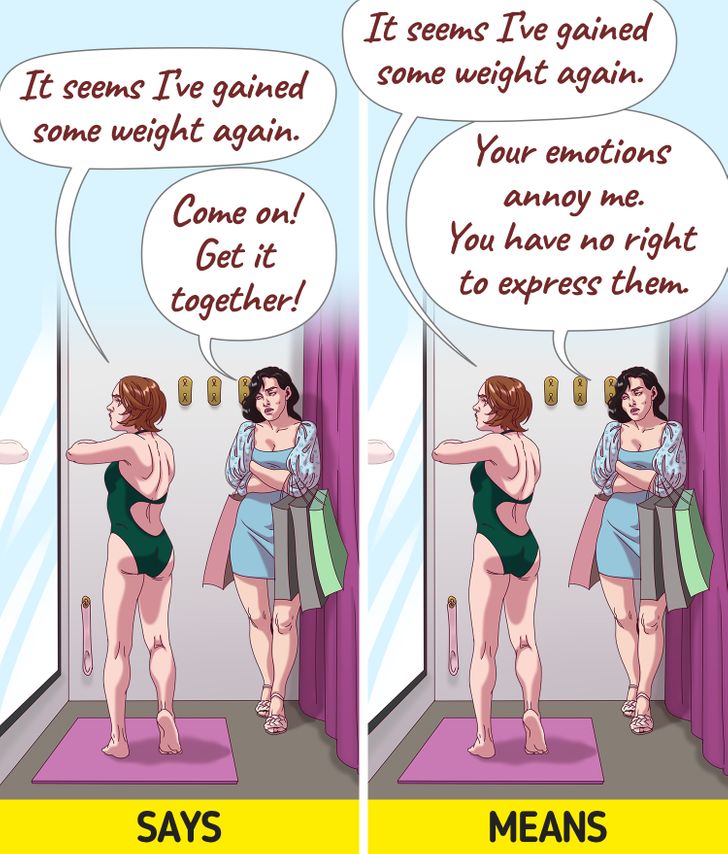
Fans of toxic positivity can accept neither their negative emotions nor the negative emotions of other people. When facing the anxiety, emptiness, or depression of other people, they try to downplay the negative experience of the interlocutor, thus isolating themselves from uncomfortable inner feelings.
Devaluing the feelings of other people
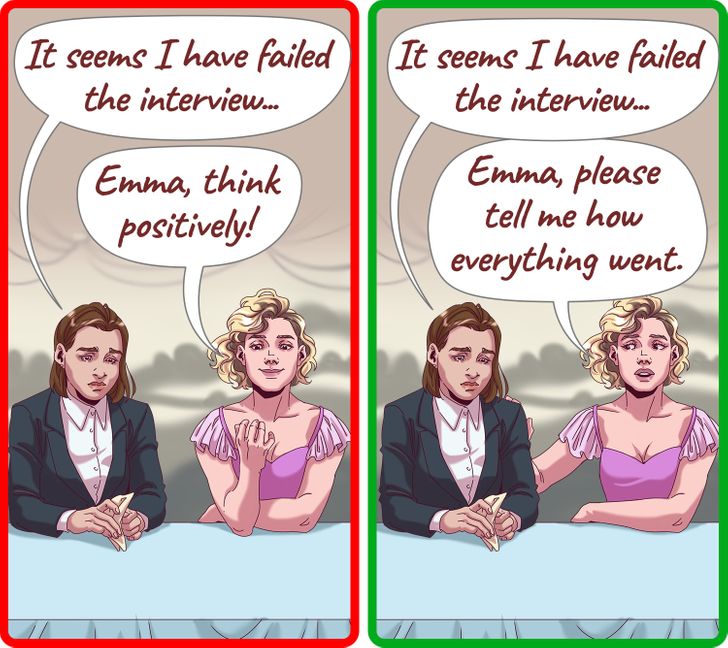
The border between support and devaluing other people’s worries is very thin. Sometimes people find it unbearable to be next to a person who feels bad and in pain. In order to hide their awkwardness, they start to demand the behavior and reaction the other person simply isn’t capable of, saying things like, “Get yourself together!” or “Come on, smile a bit. Tell me something good!” As a rule, such pieces of advice only add to the feelings of guilt and shame.
Feeling guilty for showing negative emotions
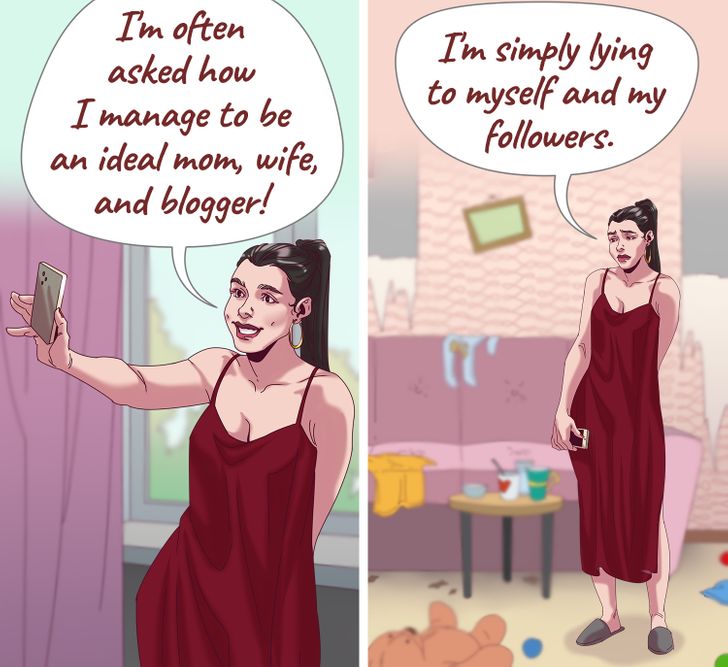
With the appearance of social media, toxic positivity started to appear more frequently in our lives. Normally, people only share the bright events of their lives with their subscribers. Optimism is considered a norm, while pessimism is criticized. However, oftentimes, a nice picture hides a deep inner dissatisfaction.
When demonstrating constant cheerfulness, a person falls into a trap: while hiding their true feelings, they accumulate negative emotions that are waiting for a chance to break out. It creates inner dissonance. “Why am I feeling so bad? Everything is fine in my life.” A ban on true feelings oftentimes leads to depression and self-criticism.
The difference between toxic positivity and healthy support

Psychologists recommend abandoning the primitive division of emotions into black and white. In fact, feelings are not good or bad — they’re merely signals that bring attention to things important to us and serve as a source of information to those around us. Accepting and living honestly through difficult and unpleasant emotions only helps us to overcome them quickly.
Unlike toxic positivity, healthy optimism never requires you to suppress “bad” emotions but instead relate to them with attention and empathy. To support a person correctly, one shouldn’t judge the person and give them some time to “feel sick.” Only after that can you try to find a way out of the situation.
There is nothing bad about cheering others up and repeating positive affirmations to oneself. The main thing is not to simplify complex worries or suppress sick emotions.
Is there a person among your friends who has a constant positive attitude toward life? What encouraging phrases annoy you the most?
Comments
I just don't talk to people about how I feel because no one cares
After reading this article, and analyzing every single talk with my friends, turns out I never had nice ones, and I don't need to...fake friends are not needed, atleast I have myself...
Related Reads
13 Workplace Dramas That Outdo Any Soap Opera

20 Hotel Experiences That Definitely Deserve a Refund

14 People Who Realized Shocking Things About Their Past
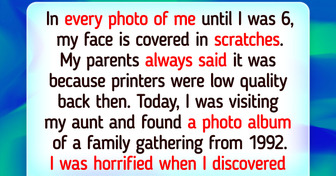
12 Single Dads Share Their Most Emotional Stories

10+ Real Stories Reddit Users Prefer Not to Tell Others Because They Sound Made Up

12 Terrifying Moments Where Reality Turned Into a Nightmare
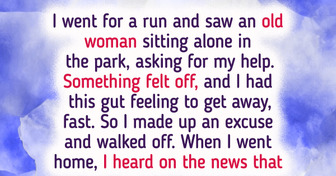
15 Real Life Events That Are Creepier Than a Movie

My DIL Humiliated Me in Public, but Karma Came Fast
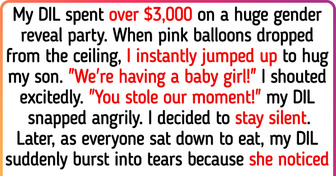
I’m Being Thrown Out of My Home Because I Don’t Want to Remain Widow for Life
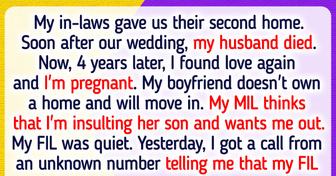
10 Real Life Stories That Shattered Hearts and Silenced Rooms

My Husband’s Family Treats Me Like a Servant — I’ve Had Enough
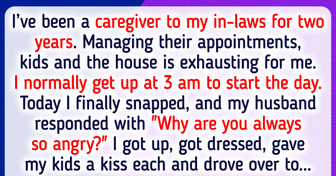
10 Dads Who Unexpectedly Embraced Their Daughters’ Partners
